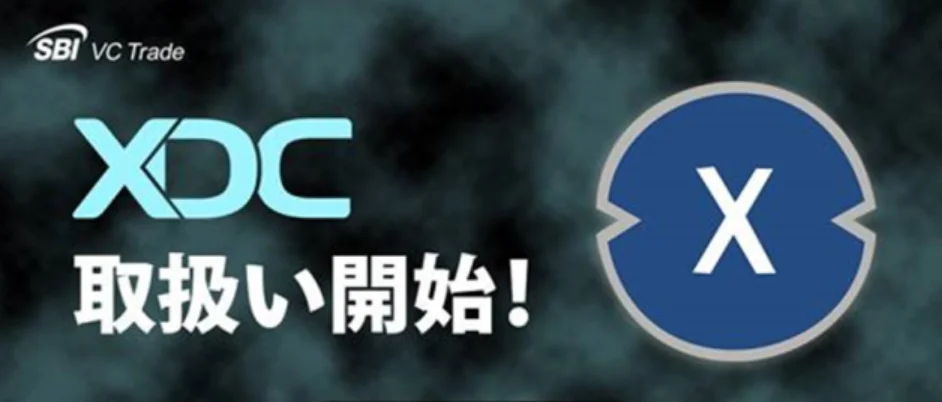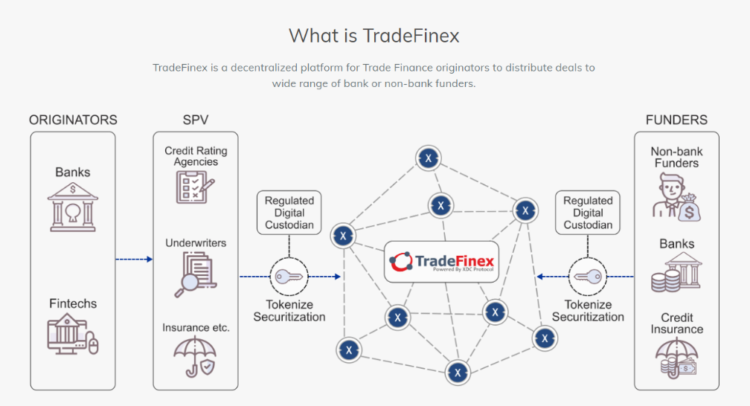SBI Holding and UAE firm TradeFinex have partnered in a joint venture seeking to drive trade finance adoption of EVM-compatible enterprise blockchain XDC Network in Japan.

TradeFinex, based in the United Arab Emirates, maintains its decentralized platform on the XDC Network for trade finance originators to connect with various banks and lenders.
TradeFinex primarily provides blockchain-based trade finance products, such as invoices, letters of credit, purchase order finance, and supply chain finance, for enterprise use cases.

The XDC Network is a layer 1 network that is EVM-compatible and incorporates interoperable smart contracts. Its documentation identifies the protocol as a “highly optimized, bespoke fork” of Ethereum, employing a delegated proof-of-stake (XDPoS) mechanism to achieve rapid transaction times, low gas fees, and a high transaction per second capacity.
The XDC token is the reserve cryptocurrency for third-party decentralized applications operating on the network. The token is designed for various use cases, including DApp payment settlements, micropayments, transaction costs, and deployment and resolution of smart contracts.
TradeFinex has collaborated with the World Trade Organization, the International Chamber of Commerce, and several government agencies to investigate blockchain to improve trade finance’s efficiency, transparency, costs, and traceability.
In 2020, the World Trade Organization released a report highlighting TradeFinex as a network that operates “as both permissioned and permissionless: permissionless for public verification, but permission for selective data sharing.”
Several participants used TradeFinex at the time of publication, including Singapore MAS-regulated Validus, Enigio, Ramco, The International Trade and Forfaiting Association, and WOA.
An announcement shared outlined the joint venture’s mission to localize XDC Network information and documentation in Japan, distribute XDC tokens to local cryptocurrency exchanges, and implement trade financing solutions throughout the Asia-Pacific region.
The inauguration of the joint ventures follows recent reports that the Japanese government intends to permit startups to raise capital through the issuance of cryptocurrency tokens as opposed to traditional stock listings.
Japan’s Financial Services Agency has announced intentions to amend its cryptocurrency-related tax code in August 2023 to play a more active role in cryptocurrency regulation. This could include exemptions from cryptocurrency “unrealized gains” tax.
